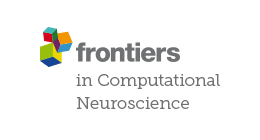
Our recent article, entitled “Can deep learning hit a moving target? A scoping review of its role to study neurological disorders in children” is accepted for publication in “Frontiers in Computational Neuroscience“.
Reference: https://www.frontiersin.org/articles/10.3389/fncom.2021.670489/abstract
Abstract: Neurological disorders dramatically impact patients of any age population, their families, and societies. Pediatrics are among vulnerable age populations who differently experience the devastating consequences of neurological conditions, such as attention-deficit hyperactivity disorders (ADHD), autism spectrum disorders (ASD), cerebral palsy, concussion, and epilepsy. System-level understanding of these neurological disorders, particularly from the brain networks’ dynamic perspective, has led to the significant trend of recent scientific investigations. While a dramatic maturation in the network science application domain is evident, leading to a better understanding of neurological disorders, such rapid utilization for studying pediatric neurological disorders falls behind that of the adult population. Aside from the specific technological needs and constraints in studying neurological disorders in children, the concept of development introduces uncertainty and further complexity topping the existing neurologically driven processes caused by disorders. To unravel these complexities, indebted to the availability of high-dimensional data and computing capabilities, approaches based on machine learning have rapidly emerged a new trend to understand pathways better, accurately diagnose, and better manage the disorders. Deep learning has recently gained an ever-increasing role in the era of health and medical investigations. Thanks to its relatively more minor dependency on feature exploration and engineering, deep learning may overcome the challenges mentioned earlier in studying neurological disorders in children. The current scoping review aims to explore challenges concerning pediatric brain development studies under the constraints of neurological disorders and offer an insight into the potential role of deep learning methodology on such a task with varying and uncertain nature. Along with pinpointing recent advancements, possible research directions are highlighted where deep learning approaches can assist in computationally targeting neurological disorder-related processes and translating them into windows of opportunities for interventions in diagnosis, treatment, and management of neurological disorders in children.